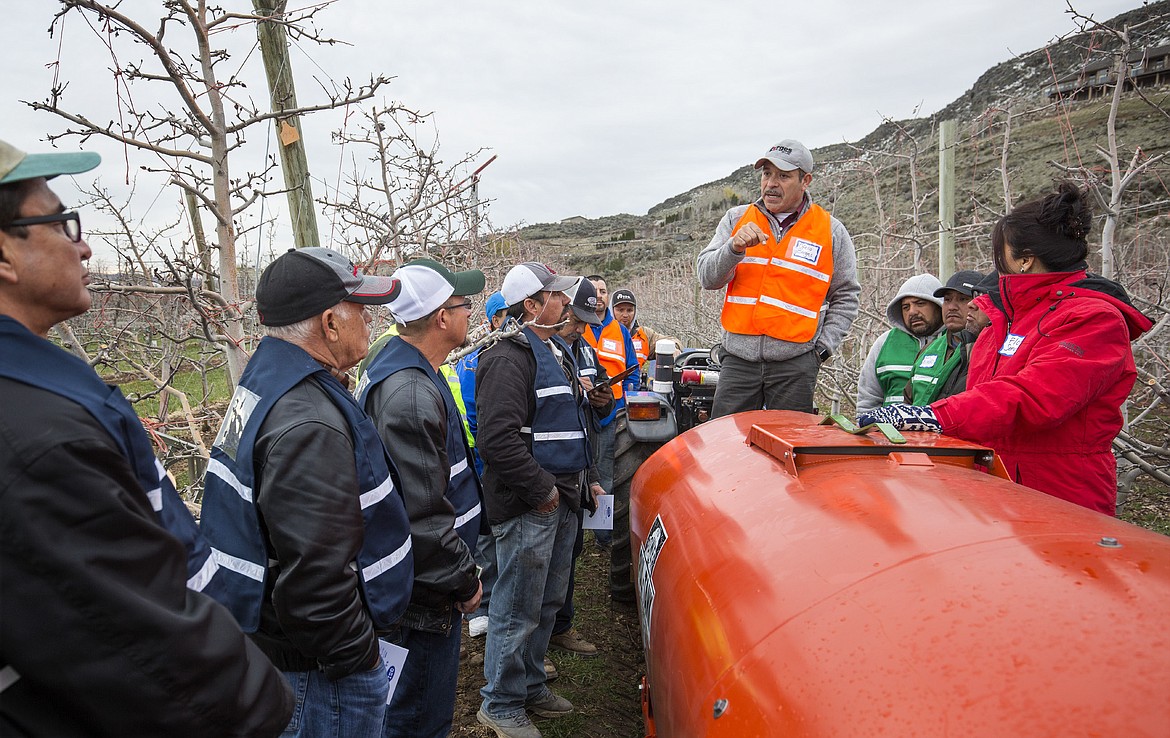Building leaders: Program aims to train the next generation of farm managers and supervisors
WENATCHEE — Ofelio Borges will tell you that a lot of farm work supervisors are promoted because they are good, reliable workers – not because they know very much about managing workers or complying with state law.
“Prior to me coming to work for the Washington State Department of Agriculture, I worked as a farm supervisor and management,” said Borges, now the manager of WSDA’s Technical Service and Education Program. “After coming to work for WSDA, I was inspecting different farms and found out that many supervisors, managers like me back in the day, we lacked a lot of training, especially in the leadership aspect of things.”
Fast workers tend to be promoted into supervisory or managerial roles because they excel at what they do, Borges said. However, managing personal resources and managing employees’ resources are very different, he said. Learning those aspects of a management role can be a challenge.
“Many supervisors and farm managers are being placed in those positions without the proper training,” Borges said.
Borges has long wanted to change that and create a program to develop leadership skills among farmworkers similar to that in other industries, to help leader and managers do their jobs better, he said.
“We haven’t heard of a program like that in the agriculture industry,” Borges said. “A group of us agreed that this was something that was needed.”
It took a while, working with the Washington State Tree Fruit Association, Washington State University, the Washington Farm Bureau and the Washington Department of Labor and Industries, but Borges said the WSDA had finally put together the state’s first Agricultural Leadership Program. The management training is designed to develop skilled and qualified leaders and managers to oversee and supervise work in the state’s orchards.
“The entire industry sees the need in these programs,” said Jacqui Gordon Nunez, WSTFA director of training, education and member services. “It’s an effort of the entire industry that has identified the need for a program that only gives people the tools and the skills they need to become effective leaders but also helps the industry retain their workers.”
Nunez said farm work as a whole is plagued by a high turnover rate, largely because the work is difficult, but also because leadership is not as good as it could be.
The three-month Agricultural Leadership Program, which begins teaching its first class in May, aims to change that by assessing each trainee’s leadership skills, teaching different kinds of leadership styles and focusing on developing communication skills, conflict management, worker safety, laws and regulations. It also will be teaching students how to foster trust with workers. All of these things will be taught over the course of 40 hours, during which participants will also have actual assignments in the field and receive guidance from a mentor skilled in fair management, Nunez said.
“They identify strategies to implement a vision in their workplace, they work with their team and then they implement that strategy. And when the three months ends, they will come back to us,” Nunez said. “They will do a quick presentation about what changes they implemented in their workplace and how the program helped them become better leaders.”
Each class will be taught on Fridays, limited to 15 students in order to keep sessions as interactive as possible, and will be taught in English and Spanish, Nunez said.
“We want the instructors to teach them the (tools), but we want them to apply the tools in the classroom, to do group exercises, to do role play (and) to do icebreakers,” she said.
Applying management skills in the workplace will be vital to the program’s success, Borges said.
“And that’s why we want to have a mentor during a three-month period, so that they can get the guidance that they need to implement what they learn during the 40 hour workshop,” Borges said.
By implementing those skills, Borges said the WSDA believes they can help take Washington agriculture to the next level.
Right now, the leadership program is specific to the fruit tree industry, but Borges said WSDA hopes to expand this other area of agriculture where there is a need for skilled supervisors and managers.
Nunez also said the WSTFA hopes to see the program made sustainable. Currently, costs are covered by a grant, but she said the WSTFA hopes to be able to train two groups each year.
“Because we know there is a need and we know there are companies that will want to sign up,” she said.
For more information on the Agricultural Leadership Program, contact Nunez at [email protected] or Borges at [email protected].


